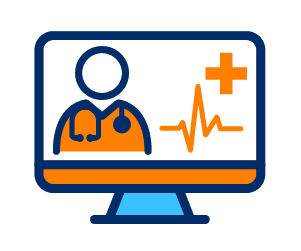
CONCERN Implementation Toolkit
Consolidating nurse knowledge, perception, and expertise to create predictive tools that provide early warnings about deteriorating patient health

Very few of the technologies developed to improve efficiency, access, and clinical outcomes were developed by nurses. Fewer still are designed to support nursing care and coordination. Those that are often inhibit the very efficiency they were intended to improve. For example, with the implementation of electronic health records, nurses’ documentation time increases from nine to 23 percent. This results in significant consequences for the nurse and, by extension, the patient.
Nurses are highly qualified and trained to provide exemplary care, yet nurses must often focus on task-oriented activities instead of the holistic and solutions-based care of their patients. Nurses, more often than not, work below their license performing routine tasks such as transporting stable patients or picking up medications from the pharmacy. The opportunity is ripe for technological innovations to automate routine tasks and elevate the value that nurses can bring to the care team, ensuring a higher quality of care and greater nurse satisfaction.
 The Technology-Enabled Nursing Practice pilots are leveraging AI, robotization, and other emerging technologies to enable nurses to move from task-oriented activities to patient care. They are enabling the culture of nursing to transform to one of innovation and adaptability. Nurses are gaining back the time to focus on health inequities and improving patient outcomes.
The Technology-Enabled Nursing Practice pilots are leveraging AI, robotization, and other emerging technologies to enable nurses to move from task-oriented activities to patient care. They are enabling the culture of nursing to transform to one of innovation and adaptability. Nurses are gaining back the time to focus on health inequities and improving patient outcomes.
Subscribe to the RN Initiative email list to receive updates on how nurses are transforming health care.
